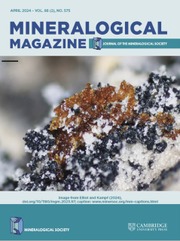Article contents
The long-term cement studies project: the UK contribution to model development and testing
Published online by Cambridge University Press: 05 July 2018
Abstract
The international long-term cement studies (LCS) project aims to increase the understanding of the behaviour of cement within a radioactive waste disposal system and how hyper-alkaline leachates may interact with host rock. Such an understanding enables confident, robust and safety-relevant statements to be made concerning future system behaviour, irrespective of host rock, engineered barrier system, or waste type. The LCS project involves laboratory experiments, in situ tests and numerical modelling to address these issues. The agencies participating are Nagra (Switzerland), JAEA (Japan), the Nuclear Decommissioning Authority, Radioactive Waste Mangement Directorate (UK), Posiva (Finland) and SKB (Sweden).
Project activities have included: the development of conceptual and theoretical models of cement–rock interaction; testing of numerical models against data from laboratory experiments and industrial and natural analogues of cement–rock reaction; and the synthesis and incorporation of performance assessment (PA) relevant data from analogue studies. Key threads running through these studies include an analysis of issues relating to upscaling of processes and data to the greater temporal and spatial scales relevant to PA, and investigations of modelling the changes in physical properties that accompany geochemical reaction. Here we present examples of the results from model test cases, highlighting the important issues that have arisen.
- Type
- Research Article
- Information
- Creative Commons
- © [2012] The Mineralogical Society of Great Britain and Ireland. This is an open access article distributed under the terms of the Creative Commons Attribution (CC BY) licence (http://creativecommons.org/licenses/by/4.0/), which permits unrestricted use, distribution, and reproduction in any medium, provided the original work is properly cited.
- Copyright
- Copyright © The Mineralogical Society of Great Britain and Ireland 2012
References
- 7
- Cited by


